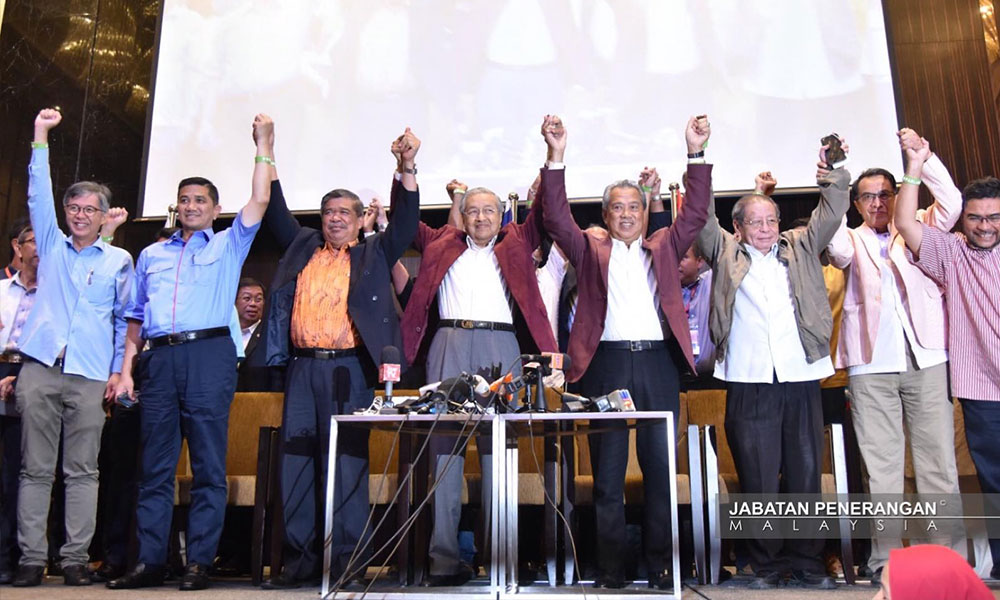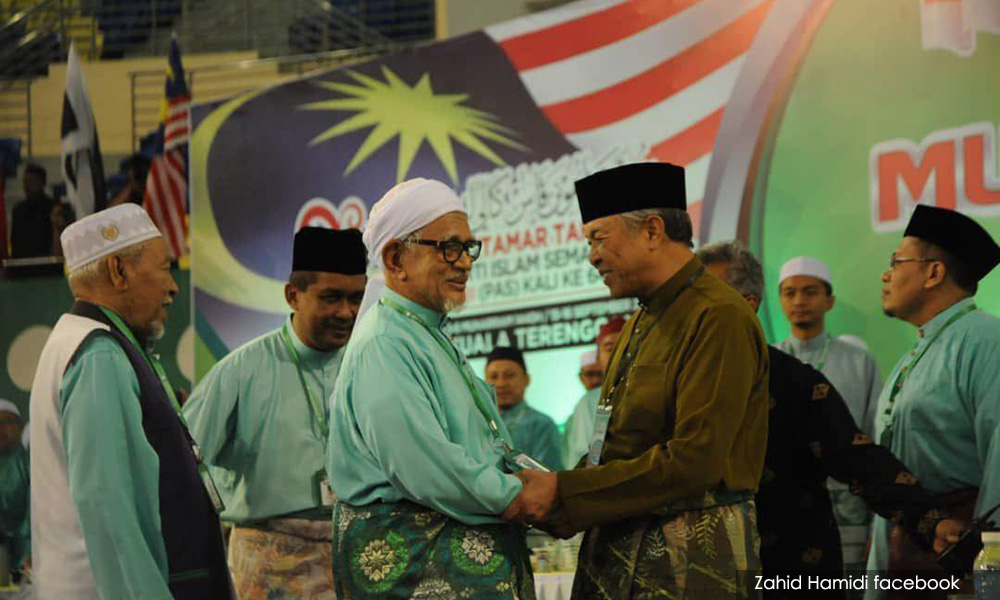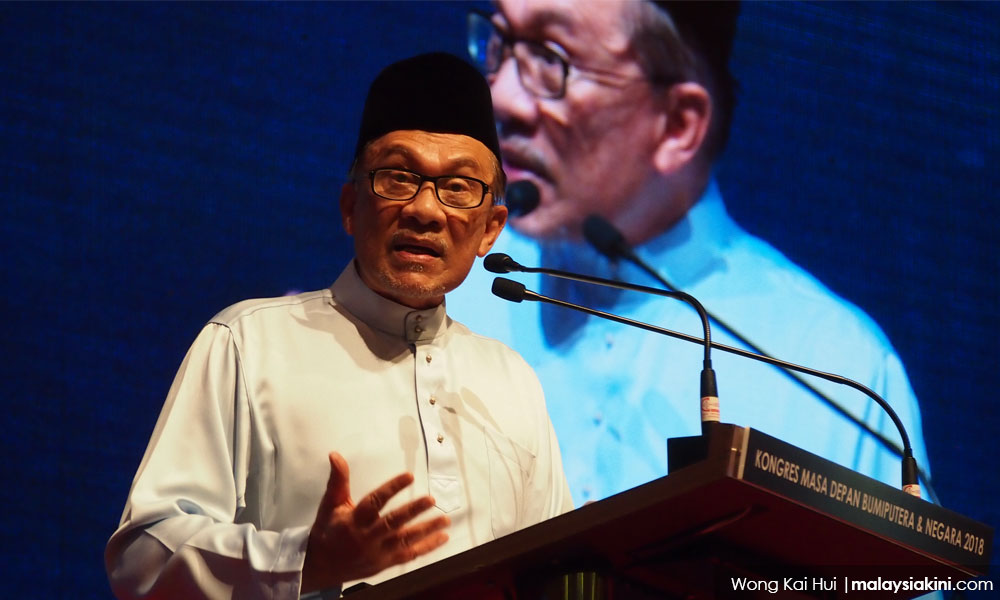COMMENT | Does Malaysia still need race-based parties? We have had quite a handful based on Malay supremacy, bumiputeraism, Islamic supremacy dominating our Malaysian political development.
The repercussions of the dominant ethnic group’s supremacy is reciprocated with minority race-based parties often acting as tribal chiefdoms.
A similar tribal rivalry was seen in 1980s apartheid South Africa, where racial politics prevailed. One may argue that racial segregation is of a lesser degree in Malaysia, or that what has been practised is affirmative action gone bad because of corruption, cronyism and nepotism.
Nonetheless, national unity is not only far-fetched and often hopelessly delusional, but the various reciprocal separate nationalisms of minority ethnic groups have also divided our people into a sort of tribal rivalry. Race and religion have come before any reasoning and basic human dignity in arguing pressing sociopolitical issues, such as corruption and wealth distribution disparity.
Racial and religious politics has and will continue to hinder the process of democratic reforms in Malaysia. True political reforms can only be realised if the reformers know where the banes and wanes are, in order to prescribe the right medicine.
An old prescription with tons of known sequelae should not be hoped to salvage the current ailments of its own making, as racial politics is still calling the day despite the vehement calls to fight corruption, nepotism and cronyism.
Previously, corruption has been defended with the political rhetoric of Malay supremacy and Malay unity, political victimisation and selective prosecution to political necessity. It is a fat hope that the country would ever move forward if we allow leaders to politicise pressing socioeconomic issues along racial and religious lines.
Interestingly, most leaders who advocate a one-school education system have run race-based political parties themselves. Political parties should set a good example by going non-racial before they are even qualified to talk about national unity in our schools.

In reality, the multicultural component parties of Pakatan Harapan, including DAP, PKR and Amanah, thrived in the last general election. This proved that Malaysians of all ethnic groups had gradually accepted pluralistic and non-racial politics.
Bersatu and Umno are based on the similar race-based ideology of Malay supremacy and bumiputeraism and PAS, Islamic supremacy. There is not much of difference between both because race is religion and religion is race according to the Federal Constitution. They offer no solutions, but potentially create new problems to prevent the country from becoming a mature democracy.
No compromise
Pakatan Harapan’s principles of non-racial politics should not be compromised, and Bersatu has to make a determined effort to deracialise itself according to a known and specific timetable.
Otherwise, Bersatu's bumiputeraism will continue to run contrary to the purpose of establishing Harapan, and in times to come, Harapan will eventually become another BN 2.0, with a repetition of racial dominance of one ethnic group over the rest at the expense of the greater values and principles of good governance, integrity and egalitarianism.
Prime Minister Dr Mahathir Mohamad pessimistically believes that race-based parties are still here to stay because Malaysian voting patterns are largely race-oriented.
But how does this then explain the fact that in the 14th general election, Harapan was supported by 95 percent Chinese voters, 75 percent Indian voters and 30 percent Malay voters against a kleptocratic regime? The majority (60 percent) of Malay voters who opposed Umno and BN were split between PAS and Harapan. The voting patterns were hardly racial when it came to an orchestrated effort to topple a kleptocratic regime.
Malaysian political reforms will continue to be pessimistic only if our top leaders themselves fail to look beyond the tinted spectacles of race. Racial stereotyping has not only been used to degrade other races but also to belittle one’s own race to maintain an elite class’ supremacy their grip on power.
If the South African apartheid regime’s once all-white National Party could forgo its one-colour only membership to all, why can’t all Malaysian political parties including the Harapan component parties do the same?

PAS president Abdul Hadi Awang and Umno president Ahmad Zahid Hamidi, respectively, indicated that Umno-PAS cooperation on common issues of, then again, 'race and religion'.
On the other hand, Bersatu propaganda chief A Kadir Jasin also denied that Umno and Bersatu had re-engaged with the idea of a merger, Pekembar Bersatu; on the contrary, former Defense Minister Hishammuddin Hussein admitted talks with the Bersatu chairperson, but the actual contents of the secret talks are unknown to the public eye. It is quite unlikely that all these secret talks had anything to do with national unity for institutional reforms.
Any form of cooperation between Umno and PAS not only undermines the process of democratic progress, but Malaysia will also be demoralised by ethnic, religious, tribal politics. More worryingly, it will further divide our people of all creeds if race and religion are placed above the unity of all mankind and the reality of diversity.
If we are determined to save our own from destruction, we have to be determined to seek genuine institutional reforms, rescue ourselves from any racial, religious and sectarian rivalries, and correct disparities in wealth distribution.
But in the midst of severe sectarianisms and xenophobia in the Islamic world, it would need a lot more positive engagement and persuasions from the outside world to convince their leaders and masses for democratisation as the only means to resolve internal sectarian and class conflicts within the Islamic world itself.
In the Malaysian context, only Malay leaders’ own conscience has to lead the way for democratic changes within the Malay-Islamic world itself. Likewise, it has to be an internal self-awareness to resolve the socio-cultural, religious and political challenges faced by Malays.
Asian Renaissance
It has to be their leaders who can master both the Islamic and world histories to convince the Malay Islamists to accept democratisation. In Southeast Asia and the Malay-Islamic world, Anwar Ibrahim, who has skillfully mastered Islamic, regional and international political knowledge altogether, is the most desirable candidate at this moment.

In his 1996 book The Asian Renaissance, Anwar advocated the concept of a renaissance from the Islamic perspective, especially how the Muslims in the Malay archipelago should inherit their own cultures and learn to live with non-Muslims in harmony. Anwar also emphasised the importance of multiculturalism in Asean's success in keeping regional peace.
This shows his understanding of international trends and regional politics. He is not only prepared to lead Malaysians to thrive in the international arena, but also to lead the regional peace in Southeast Asia. He believes that the cohesiveness in the region will play an important role in leading the Asian renaissance or the rebirth of Asian civilisations.
The Islamic and Malay worlds are at a crossroads in their own human and civilisation development. Like in the European Renaissance, where the region's political, sociocultural and economic development had been monopolised by the Roman Catholic Church during the Dark Ages, the basic essence of the Renaissance did not escape from Christianity itself.
Although the development of culture, education and art had not been completely separated from religion, the Renaissance had great impact on the church's monopoly of politics, economics, literature and education. It had paved the way for the new birth of science and technology, the Industrial Revolution and later the democratisation of governments in Europe.
For Asian societies, we have put the cart before the horse, so to speak; science, technology and industrialisation have been placed at the forefront, while human development, freedom of speech and information and redistribution of wealth have been largely ignored.
The differences between races have been exaggerated by politicians of various ethnic groups for the purpose of maintaining an elite class of power. Therefore, it is quite natural that the political struggles based on religious extremism has made its way to become the only alternative for some.
In The Asian Renaissance, Anwar emphasises the significance of the revival of Asian multiculturalism through humanism, including the Islamic view of the revival of Malay culture and pluralism.
This is an inevitable process for the revitalisation and democratisation of Malaysia, and it also makes up a vital strategy for uplifting Malaysia to the status of a mature democracy and an advanced nation of new industrial revolution.
In the midst of competitions between Malay supremacy of Umno, the bumiputeraism of Bersatu and the Islamic supremacy of PAS, we have to be optimistic in forging institutional reforms from the perspective of promoting non-racial politics.
Perhaps, the three major non-racial component parties of Harapan, namely PKR, DAP and Amanah, should seriously consider a grand merger into a single non-racial political party to turn a new leaf and away from racial and tribal politics.
This inevitable trend will also force Umno, Bersatu and PAS to shy away from apartheid-like tribal politics, open their doors for all Malaysians and move towards a new rebirth of non-racial politics that will lead Malaysia and Southeast Asia to become highly developed nations and a peaceful, prosperous region.
With an unwavering determination for institutional reform, freedom of speech and cultural expression, the Malaysian renaissance would not only kick off another round of “tigerish” economic development, but also our country’s socio-cultural development would be made more sustainable and vibrant.
DR BOO CHENG HAU is the former state assemblyperson for Skudai.
The views expressed here are those of the author/contributor and do not necessarily represent the views of Malaysiakini.

